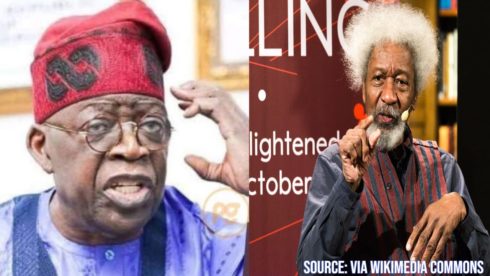Nobel Laureate Wole Soyinka has delivered a sharp criticism of President Bola Tinubu’s recent address to the nation regarding the ongoing protests and unrest. Wole Soyinka expressed disappointment in the President’s handling of protest management, stating that the address “fell conspicuously short” in this crucial area.
The renowned author and playwright emphasized that while the President’s outline of governmental remedial actions since taking office may receive expert analysis, his primary concern lies with the “continuing deterioration of the state’s seizure of protest management.” This critique highlights a significant gap between the administration’s approach and the expectations of civil society.
Government’s Use of Force Under Fire
Wole Soyinka particularly condemned the use of live bullets as a state response to civic protests. He argued that such actions arm security forces with impunity and perpetuate a cycle of resentment and reprisals. Even the use of tear gas, he noted, remains questionable in most circumstances and constitutes an abuse in situations of peaceful protest.
The Nobel Laureate’s statements underscore a growing concern about the government’s heavy-handed approach to managing public demonstrations. By equating the current situation to colonial-era tactics, Wole Soyinka draws a stark parallel between present-day Nigeria and its pre-independence struggles.
Hunger Marches: A Universal Call for Action
In his critique, Wole Soyinka emphasized that hunger marches are a universal distress signal, not unique to Nigeria. He described these protests as a summons to governance, indicating that a breaking point has been reached. The government’s tragic response to these marches, Soyinka argues, represents a significant regression in civil rights and governance.
By referencing Hubert Ogunde’s folk opera “BREAD AND BULLETS,” Wole Soyinka draws a historical connection between current events and Nigeria’s struggle for independence. This comparison serves to highlight the severity of the current situation and the government’s failure to progress beyond colonial-era tactics.
Call for Modern Protest Management Techniques
Wole Soyinka pointed out that Nigeria’s security agencies cannot claim ignorance of alternative, more civilized approaches to protest intervention. He cited the 2022/23 Yellow Vest movement in France as an example, noting that he did not observe a single instance of guns being leveled at protesters during those events.
The Nobel Laureate, Wole Soyinka suggested that such scenarios should be made compulsory viewing in policing curriculum. This recommendation underscores the need for a significant shift in how Nigerian security forces approach crowd control and protest management.
Warning Against Lethal Force and Its Consequences
Wole Soyinka issued a stark warning about the consequences of using lethal force against protesters. He described the serving of bullets where bread is pleaded as an “ominous retrogression,” potentially leading to more desperate upheavals, including revolutions.
The author called for an immediate and permanent abandonment of lethal means by security agencies. He argued that no nation is so underdeveloped or insecure as to lack the will to set a positive example in this regard, emphasizing that it only requires the will to commence a lasting transformation.
A Call for Change and Historical Reflection
Wole Soyinka suggested that today’s protesters consider adopting key songs from Ogunde’s “BREAD AND BULLETS” to instill a sense of shame in the continued failure to move beyond colonial-era tactics. He stressed the importance of breaking the vicious cycle of lethal responses against civil society.
The Nobel Laureate’s powerful critique serves as a call to action for both the government and the people. By urging a reflection on Nigeria’s history and a commitment to change, Wole Soyinka highlights the urgent need for a new approach to managing civil unrest and addressing the root causes of public dissatisfaction.
Table of Contents
Discover more from OGM News NG
Subscribe to get the latest posts sent to your email.














